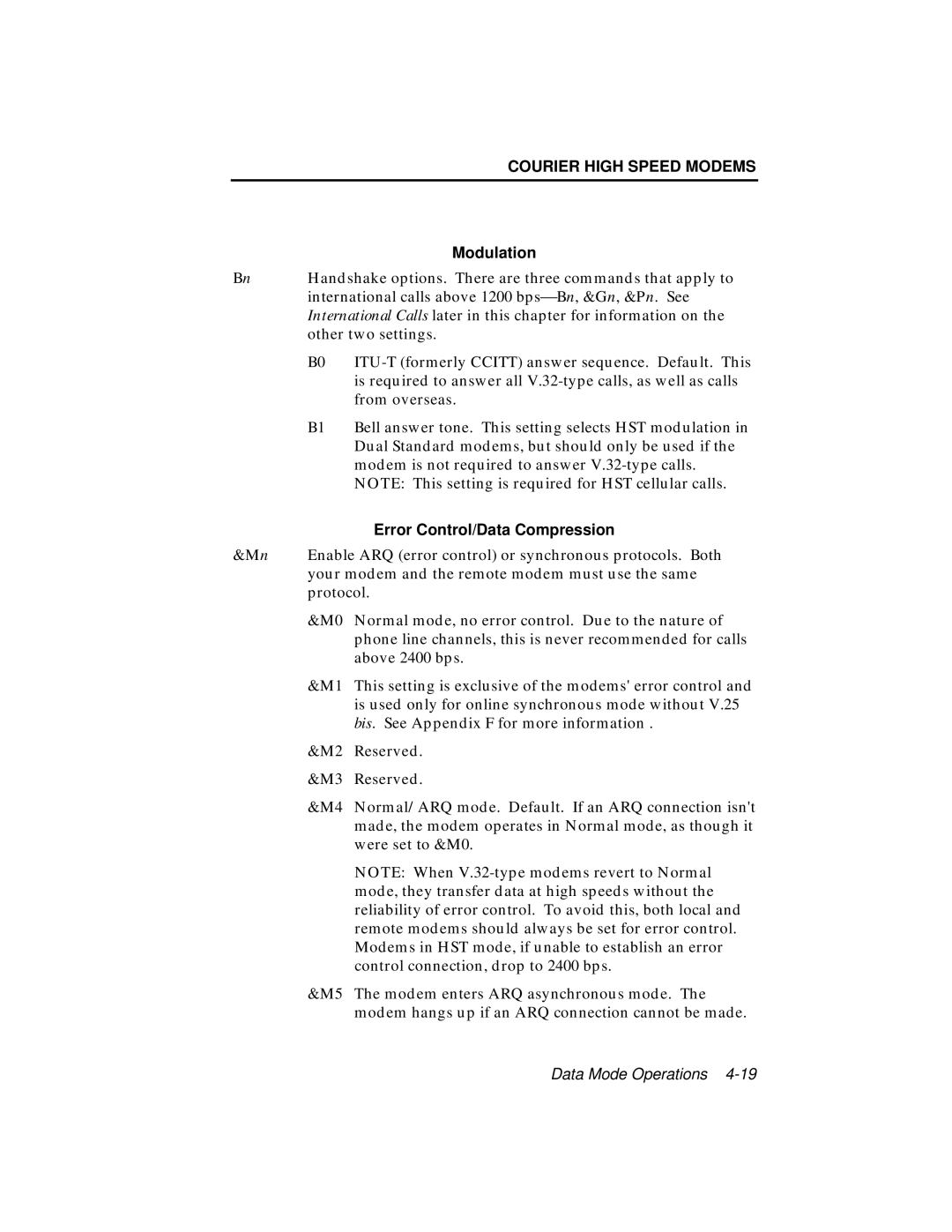COURIER HIGH SPEED MODEMS
|
| Modulation |
Bn | Handshake options. There are three commands that apply to | |
| international calls above 1200 bps⎯Bn, &Gn, &Pn. See | |
| International Calls later in this chapter for information on the | |
| other two settings. | |
| B0 | |
|
| is required to answer all |
|
| from overseas. |
| B1 | Bell answer tone. This setting selects HST modulation in |
|
| Dual Standard modems, but should only be used if the |
|
| modem is not required to answer |
|
| NOTE: This setting is required for HST cellular calls. |
|
| Error Control/Data Compression |
&Mn | Enable ARQ (error control) or synchronous protocols. Both | |
| your modem and the remote modem must use the same | |
| protocol. | |
| &M0 | Normal mode, no error control. Due to the nature of |
|
| phone line channels, this is never recommended for calls |
|
| above 2400 bps. |
| &M1 | This setting is exclusive of the modems' error control and |
|
| is used only for online synchronous mode without V.25 |
|
| bis. See Appendix F for more information . |
| &M2 | Reserved. |
| &M3 | Reserved. |
| &M4 | Normal/ARQ mode. Default. If an ARQ connection isn't |
|
| made, the modem operates in Normal mode, as though it |
|
| were set to &M0. |
|
| NOTE: When |
|
| mode, they transfer data at high speeds without the |
|
| reliability of error control. To avoid this, both local and |
|
| remote modems should always be set for error control. |
|
| Modems in HST mode, if unable to establish an error |
|
| control connection, drop to 2400 bps. |
| &M5 | The modem enters ARQ asynchronous mode. The |
|
| modem hangs up if an ARQ connection cannot be made. |
Data Mode Operations
